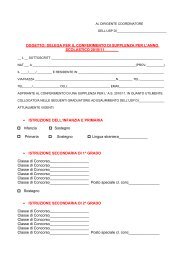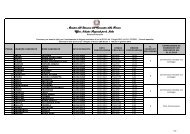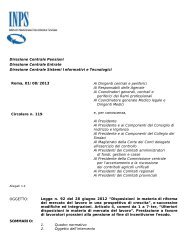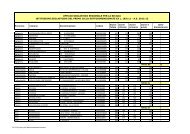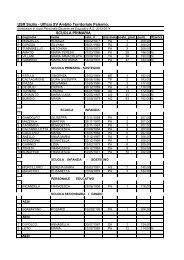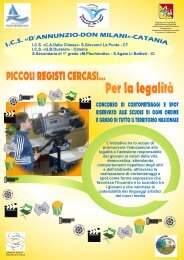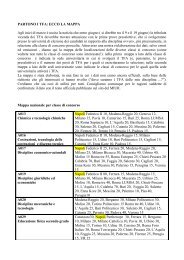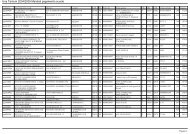Analisi - knowledge management case studies - Aetnanet
Analisi - knowledge management case studies - Aetnanet
Analisi - knowledge management case studies - Aetnanet
Create successful ePaper yourself
Turn your PDF publications into a flip-book with our unique Google optimized e-Paper software.
• Enhance the value proposition 4 of BT products and services by:<br />
o Reducing time to market and<br />
o Increasing innovation;<br />
• Improving the quality of work for BT employees by:<br />
• Avoiding mistakes being repeated;<br />
• Avoiding work being duplicated;<br />
• Share good ideas and<br />
• Eliminating the dependence on a few key individuals.<br />
Knowledge <strong>management</strong> goals<br />
• Making existing <strong>knowledge</strong> work harder,<br />
• Generating and quickly recycling learning across the business, and<br />
• (Re)connecting people.<br />
Design and implementation<br />
The <strong>knowledge</strong> <strong>management</strong> system (i.e. <strong>knowledge</strong> infrastructure) that BT’s has put in place<br />
for reaching the organisational goals addresses leadership & <strong>management</strong>, organisational<br />
structure & HRM, processes and Information & communication technology.<br />
Leadership and <strong>management</strong><br />
Small central team<br />
BT’s <strong>knowledge</strong> <strong>management</strong> activities are facilitated by a small central team. This is<br />
different to the old way of doing projects, which typically have involved large, centrally<br />
controlled project embracing lots of people in the project group. The new approach reflects<br />
the culture BT is trying to promote, with small, fast and flexible teams working collaboratively<br />
across the business to achieve goals. Therefore, very few people at the centre are employed<br />
on <strong>knowledge</strong> <strong>management</strong> (4), working primarily as catalysts to encourage local initiatives<br />
and accelerate cross-functional learning. Most of BT’s business units have people working on<br />
<strong>knowledge</strong> <strong>management</strong>, through only a few (~12 people) have this as their specialist role.<br />
BT also maintains a <strong>knowledge</strong> <strong>management</strong> research group, looking at future tools and<br />
technologies.<br />
No separate mandate for <strong>knowledge</strong> <strong>management</strong><br />
BT sees <strong>knowledge</strong> <strong>management</strong> as central, and not separate to its business strategy.<br />
There’s no mandate from the top of BT for a separate, company-wide <strong>knowledge</strong><br />
<strong>management</strong> programme. Therefore, part of the work of the central team is to sell the<br />
benefits of <strong>knowledge</strong> <strong>management</strong> into the business units. Also to provide some internal<br />
consulting to help get initiatives going. No separate mandate means that its harder to<br />
implement standard company-wide approaches e.g. if a business unit decides to develop a<br />
lessons learned repository and publish the lessons on their web site they are free to do so.<br />
4 Added <strong>knowledge</strong> equals added value, so there is an alternative for competing on price.<br />
CIBIT 20<br />
analisi-KM <strong>case</strong> <strong>studies</strong>.doc - 25/5/99



